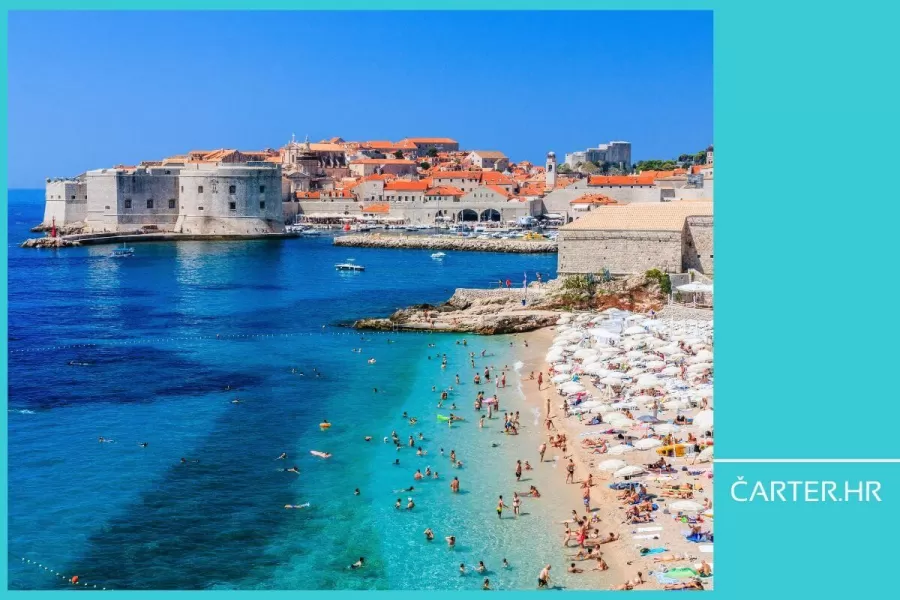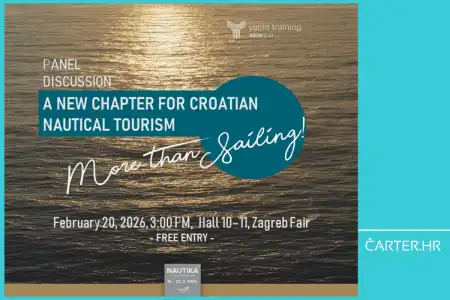
- 12.09.2023.
- News, Regulations
Tourism in Croatia is flourishing, but is everything as rosy as it seems? Despite the growth, the season was full of challenges, from media obstacles to debates about private accommodation. Why has this type of accommodation become the focal point of discussion, and how does it affect our economy? Ivica Žuro discusses how Croatia is coping with these challenges and what steps need to be taken to ensure tourism remains our strong suit.
The fiscal amount of money in tourism in the first eight months is almost a quarter higher than the previous year, so overall, we're moving forward... But still - a very peculiar season.
From high demand in the pre-season to grappling with pricing policies and harnessing all available resources. However, perfection is elusive.
And one must admit that almost every year, something has worked in Croatia's favour that affected competitors: last year, there was a war in Eastern Europe, the year before stricter lockdowns than the rest of the EU Mediterranean, and eight years ago, a refugee wave that overwhelmed Greece and Turkey.
Tourism in Croatia: are we cutting the branch we're sitting on?
This year, in addition to the return of competition, our tourism faced another enemy: certain foreign and domestic media. The former, driven by profit, aims to negate competitive destinations thinking of their advertisers. An Osijek biscuit factory won't advertise in the Frankfurter Allgemeine Zeitung, so they indulge in both warranted and unwarranted, subtle slandering.
Every country aims to support its own tourism and keep domestic tourists at home.
Especially given the economic situation underscored by higher operating costs, campaigns are launched to encourage Germans and Austrians to vacation at Worthersee or in continental resorts.
Our media, on the other hand, is in the fight for every like between influencer divorces, announcements of unwatchable domestic soap operas, and reporting on which famous Croat has fired up the grill.
They eagerly present photos of bills they deem too expensive, criticizing the cost of this and that.
In short, let's not cut the branch we're sitting on, which is tourism. In nautical terms, we're a global power, and in other areas, we have a say.
Every Euro spent on domestic tourism doesn't just buy a light bulb for a BMW rentier, as some media loudly suggest. Specifically, it pays the cleaners, laundry workers, wholesale deliverers, potato growers, olive farmers, hospitality staff, transfer drivers, national park workers and supports the families of all mentioned.
Tourism has been the most robust branch of the national economy since the end of the war in 1995. Just recall what happened to various processing industries, chemical-technological ones, and the like.
A madman cuts the branch he's sitting on; a wise man thinks about how to make the tree bear even more fruit.
Dante Alighieri would have devised - if he were writing his magnum opus, Inferno, today - a special circle of hell for those who photograph receipts and complain on social media.

Introducing levies as motivation. Or perhaps more like a Split graffiti ...?
Profit in nautical tourism occasionally gets directed towards complementary activities that will enhance the offer or provide a new opportunity for guests to choose to come specifically to us.
For instance, a great opportunity is the construction of holiday homes or villas with pools or a small resort with a fantastic view, not necessarily on the coast and with a dose of today's greatest luxury - privacy.
In this context, a debate arose - which is generally a signal that everything is okay with our situation - namely, the hotel lobby and some media, primarily from the continent, have been competing for weeks in criticizing private accommodation and advocating for the introduction of a special levy.
What's bad is that this contributes further to the indiscriminate tarnishing of domestic tourism.
We agree that the quality of accommodation should be raised and attract more financially capable guests.
In this, private accommodation is significantly ahead of hotel accommodation. Only the newer ones can match in terms of decor and to some extent amenities, but not in terms of space per guest, and they can't ensure privacy as the main luxury. No tax will help here.
Sound entrepreneurial reasoning suggests that the primary advocacy should be for reducing taxes for everyone, not introducing them for one group. This achieves a uniform tax treatment.
A graffiti from Split aptly says that assumption is the mother of all f***-ups... so we won't bet that this is the motivation here, but rather an attempt to disable competitors in every way.

In short, the essence of the debate boils down to charging a special tax to rentiers who have houses for rent or another property because it's more profitable for them and to pay flat taxes or those for holiday homes than to open a hotel, employ 10 people, and start working.
Private accommodation has developed into a dominant form domestically because existing hotel companies either failed or lacked the will and strength to invest in renovations and capacity expansion. They also couldn't afford to pay employees in line with market averages.
Combined with the absence of any processing industry and other service sectors, this could have resulted in a serious problem for local communities along the coast. Fortunately, the focus has been on private accommodation.
If the idea is that by making it harder for private accommodation to operate, some experienced tourism workers will return – the initiators of such agendas are sorely mistaken. People no longer want to, after 10 years, finally achieve the status of a permanent seasonal worker and have a warm midday snack at work as the main perk.
Furthermore, as mentioned earlier in the text, private accommodation feeds a solid number of people in line.
Unlike hotels that offer comprehensive service, apartments and holiday homes, to a greater extent, stimulate entrepreneurship and employment through greater non-boarding consumption in certain locations.
And it's not like it isn't taxed. From 3% on real estate transactions when buying, through paying utility contributions and connections to purchasing materials and equipment to function.
Moreover, avoiding double taxation, along with respecting private property, is one of the postulates on which the European Union is based.
In addition, the tax policy in the Republic of Croatia has already taxed the said accommodation through flat taxes, taxes on tourist income, and taxes on accommodation units in certain coastal municipalities and cities.
Private accommodation has always been and remains exempt from any subsidies and stimulus.
During the pandemic, hotels had subsidies and were granted a moratorium on loan repayments, unlike those who were targeted by public criticism.

Conclusion: Seize the opportunity to learn something or make a "sliding tackle"?
For many people, it's hard to admit that they have something to learn from someone else.
It's easier to go in with a sliding tackle and break legs, just as Martin Taylor once did to the Croatian national team player Eduardo da Silva. However, the latter is always remembered as a player, unlike Taylor, who is still synonymous with unnecessary roughness to this day.
The hotel sector, therefore, has a unique opportunity to leverage the experiences of private accommodation, especially those targeting the upper-middle and high-wealth groups.
Such initiatives are fruitless, and in essence, the analogous situation would be similar if cruisers advocated making business more difficult for nautical charter companies - or even banning them altogether.
Fortunately, they've got better things to do and their own market that they stick to.
Categories of trends
- News
- Sale
- Marketing
- SEO
- Web design
- Social media
- Technology
- Regulations
- Management
- Education
- Finances
- User experience
Newsletter
Sign up for the newsletter and receive the latest trends and tips straight to your inbox




